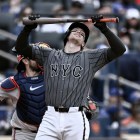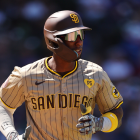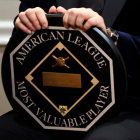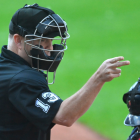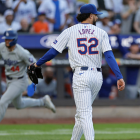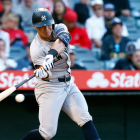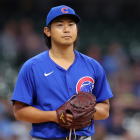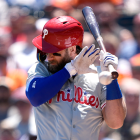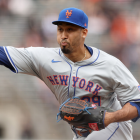How much does team chemistry matter in baseball? It's a tough question, to be sure, since we're asking for a quantifiable answer to an issue that we can't quantify. It's a discussion to be had nonetheless, however, because since the inception of team sports, team chemistry has been a discussion point.
What fascinates me in baseball is the unique dynamic. Unlike football, basketball and hockey, there's no real interpersonal flow to the sport. A batter is hitting as an individual. Sure, there are double-play combinations, and the pitcher and catcher have to work together, but many times "teamwork" boils down to individuals playing well.
On the flip-side, these guys have to play together almost every single day for six months. A locker room full of people who don't get along? That's a recipe for disaster.
When it comes to chemistry in baseball, it seems to me that it's backward. That is, if a team is winning, everyone is going to get along. If a team is losing, there's potentially a problem. It's a bit of a chicken-and-egg thing here and -- for the most part -- the winning is what comes before the chemistry.
"I think production ultimately creates chemistry," said A's GM Billy Beane in 2014, per the San Jose Mercury News.
This is a bit of a new-school attitude, but we can't overdo it. Baseball players aren't robots, but human beings. If that's forgotten, it seems that we run into problems. No one could convince me that the Jonathan Papelbon trade to the Nationals last year had zero impact on the psyche of the team.
If we want a recent example of a team with great chemistry, look no further than the 2015 World Series champion Royals. They had a great run to the World Series in 2014 that obviously brought them together, but it was more than that. Many of them had played together for years in the minors and came up together. They all went through the bad years together, surely helping to make them more closely knit. And then heading into 2015, all they heard was that their 2014 run was a fluke and wouldn't happen again.
So through the early part of the season, we see the Royals with a chip on their shoulder, an "us against the world" approach. They got in fights with virtually the entire AL. It carried over into the postseason when we saw them collectively get angry at a purpose pitch from Noah Syndergaard to Alcides Escobar.
We can again note that maybe the Royals only had great chemistry because they were winning, and I refuse to totally dismiss the notion, but man, to see them in the locker room together illustrated that it was more than that. They love each other and would do anything for one another. It was a true team and that's a testament to the leadership in the locker room as well as manager Ned Yost.
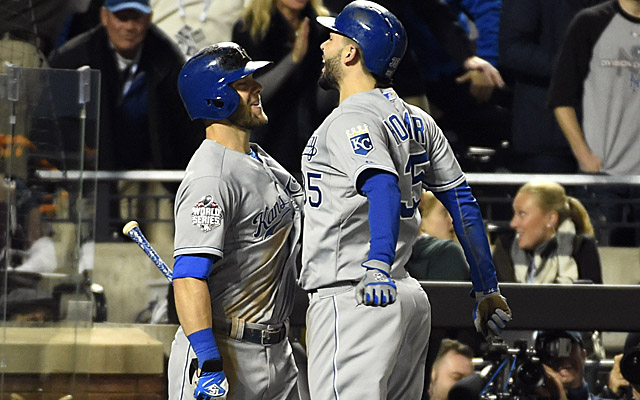
For an example of a new-school front office seeking out chemistry, check out the Cubs. They brought in David Ross last offseason despite already having Miguel Montero and Welington Castillo. Ross was Jon Lester's personal catcher, sure, but he's long been known as a clubhouse guy. I saw it firsthand, too, the first time the Cubs visited Cincinnati last April. When he walked into that clubhouse, it was like a mini-ovation. "Rossy!" they cried in jubilation. The veterans, the rookies, everyone. David Ross was truly beloved in that clubhouse.
Did he really make that big an impact? Again, we can't measure it. We do know the Cubs went from 73 wins to 97 in one season. There were obviously several changes, but it would be foolish to discount that he had an impact, notably on the pitching staff and the youngsters.
How does it look for this season? Well, the Royals are in good shape. The Cubs and Astros are two teams who went through rebuilds and once that's turned around, it seems to bind them (on the Cubs' front, John Lackey is great friends with Jon Lester and Joe Maddon while Jason Heyward and Ben Zobrist would fit in anywhere). The Cardinals and Pirates will probably rally around taking down the hype-train Cubs. With Yoenis Cespedes back in tow, the Mets can rally around last season's run and its momentum. The Giants get along real well in even years and now their rotation is revamped.
I expect all of the above teams to be productive, which Beane contends is what actually builds chemistry. He's probably correct, though I think the answer lies somewhere in the middle. It's complicated, and the best players will ultimately decide the best teams, but chemistry can't be discounted. Even the most new-school front offices know this. It's why players like Ross keep getting work in the face of poor production.













